
Sprecherin des Global South Studies Center (GSSC)
100
Hauptgebäude, Albertus-Magnus Platz 1,
Raum 6.003
E-mail mpelican@uni-koeln.de
Website Website von Prof. Pelican
Website Rektoratsbeauftragung für Internationales

Sprecherin des Global South Studies Center (GSSC)
100
Hauptgebäude, Albertus-Magnus Platz 1,
Raum 6.003
E-mail mpelican@uni-koeln.de
Website Website von Prof. Pelican
Website Rektoratsbeauftragung für Internationales
Ich bin Schweizerin und habe in Bayreuth Ethnologie, Philosophie und Religionswissenschaften studiert und an der Martin-Luther-Universität Halle-Wittenberg in Ethnologie promoviert. Vor meiner Berufung an die Universität zu Köln war ich als Gastprofessorin an der Graduate School of Asian and African Area Studies (ASAFAS) der Universität Kyoto (2011) und als wissenschaftliche Assistentin am Ethnologischen Seminar der Universität Zürich tätig (2006-2012). Davor arbeitete ich am Max-Planck-Institut für ethnologische Forschung in Halle/Saale in der Abteilung ‚Integration und Konflikt‘ (2000-2006) und verbrachte ein Jahr als Marie Curie Fellow an der Universität Kent in Grossbritannien (2003).
Meine Forschungsschwerpunkte sind transnationale Migration, Süd-Süd Mobilität, Ethnizität, Indigenität, pastorale Ökonomie, visuelle Anthropologie und Medienethnologie. Regional verorte ich mich im sub-saharischen Afrika, insbesondere Kamerun, wobei ich mein Forschungsfeld in den letzten Jahren in die Golfstaaten und nach China ausgeweitet habe.
In der Lehre vertrete ich die Themenfelder: Methoden der Ethnologie, Migration, Ethnizität, Hexerei, Freundschaft, Ethnologie Afrikas. Ich betreue Abschlussarbeiten auf Bachelor-, Master- und Doktoratsniveau, die sich mit meinen Lehr-und Forschungsinteressen überschneiden.
Transnationale Migration, Süd-Süd Mobilität, soziale Ungleichheit, Ethnizität, Indigenität, Konflikt, pastorale Ökonomie, visuelle Anthropologie und Medienethnologie.
Subsaharisches Afrika: Kamerun, Gabun, Südafrika; Vereinigte Arabische Emirate; China.
Institutsschwerpunkte: Methoden, Globalisierung.
In meinen bisherigen Forschungsprojekten beschäftigte ich mich mit den Themenfeldern Migration, Ethnizität, Konflikt, soziale Ungleichheit und pastorale Ökonomi. Hinzu kommen diverse Film-und Medienprojekte, sowie internationale Kollaborationen. Im Folgenden sind ausgewählte Projekte aufgelistet. Für eine detaillierte Darstellung besuchen Sie bitte meine persönliche Webseite.
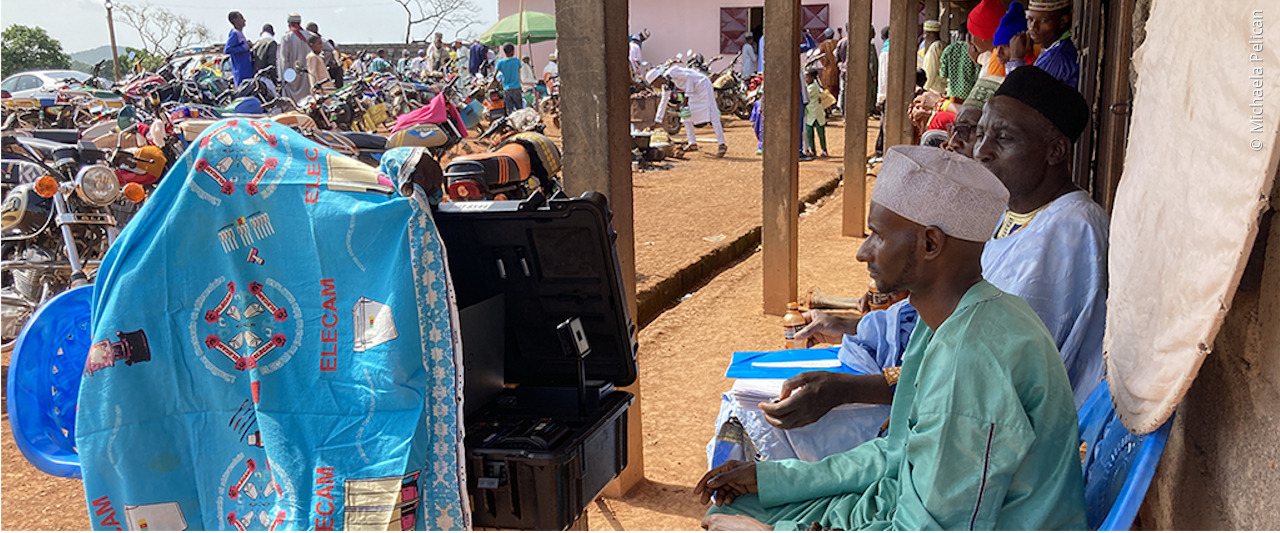
Duration:
2023-2024 / Budget 70.000 EUR
There are an estimated 281 million migrants worldwide, with 89.5 million being forcibly displaced. Political and humanitarian measures to address forced migration often neglect the socio-economic aspects of displacement. Understanding migrants’ socio-economic situations is essential to managing forced migration and achieving the UN Sustainable Development Goals. At the heart of this project are two violent conflicts – the Anglophone conflict in Cameroon and the military coup in Myanmar – which have resulted in significant displacement but have received limited attention in international public debates.
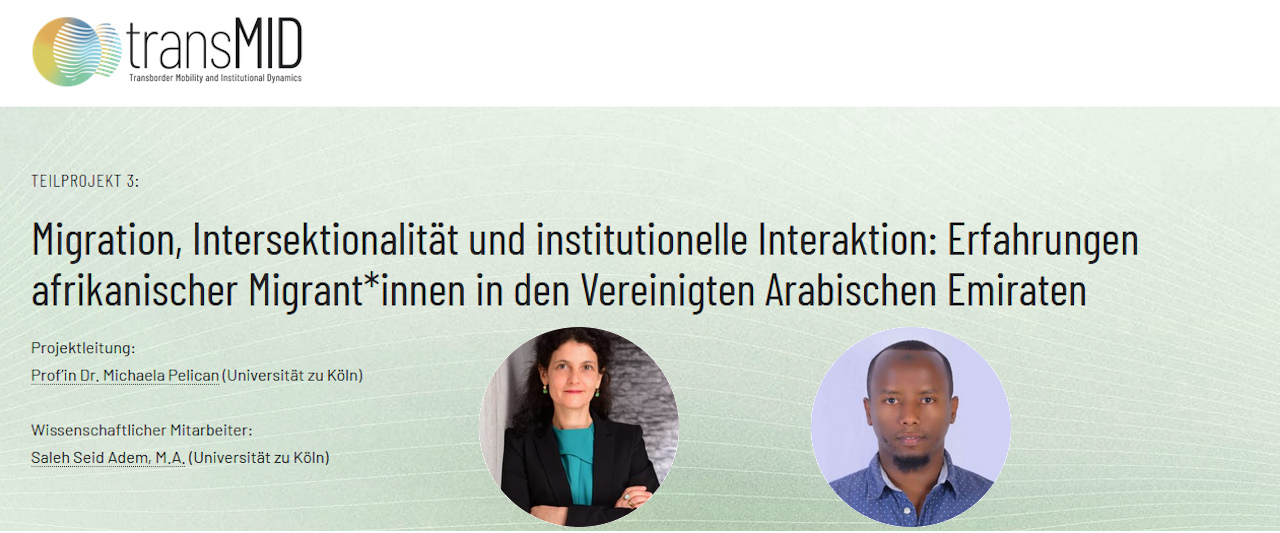
Laufzeit
Förderphase : 2022- 2026 | Fördervolumen Teilprojekt 3: 375.404 Euro
Das Forschungsprojekt untersucht die Wechselwirkungen zwischen grenzüberschreitender Mobilität und Institutionendynamiken in den Vereinigten Arabischen Emiraten. Konkret will es verstehen, wie Intersektionalität die Interaktion zwischen migrantischen Akteur:innen und Vertreter:innen der in den Golfstaaten vorgefundenen Institutionen prägt und wie Differenz bzw. Differenzzuschreibungen ausgehandelt werden. Dabei nimmt das Projekt insbesondere auch Institutionen der migrantischen Selbstorganisation in den Blick und betrachtet das in der Golfregion verbreitete Kafala-System nicht nur in Bezug auf seine restriktiven Aspekte, sondern auch im Hinblick darauf, wie Migrant:innen dieses produktiv in ihre Strategien einbeziehen. Das Projekt fokussiert auf Migrant:innen aus Afrika (insbesondere Äthiopien und Kamerun); eine Personengruppe, die in bisherigen Forschungen zu den Golfstaaten wenig Beachtung fand. Methodisch integriert es ethnologische und soziologische Ansätze und verwendet ein Mixed-Methods Design, welches u.a. Auto-Ethnographie als zentrale Methode zur Untersuchung von Intersektionalität beinhaltet.
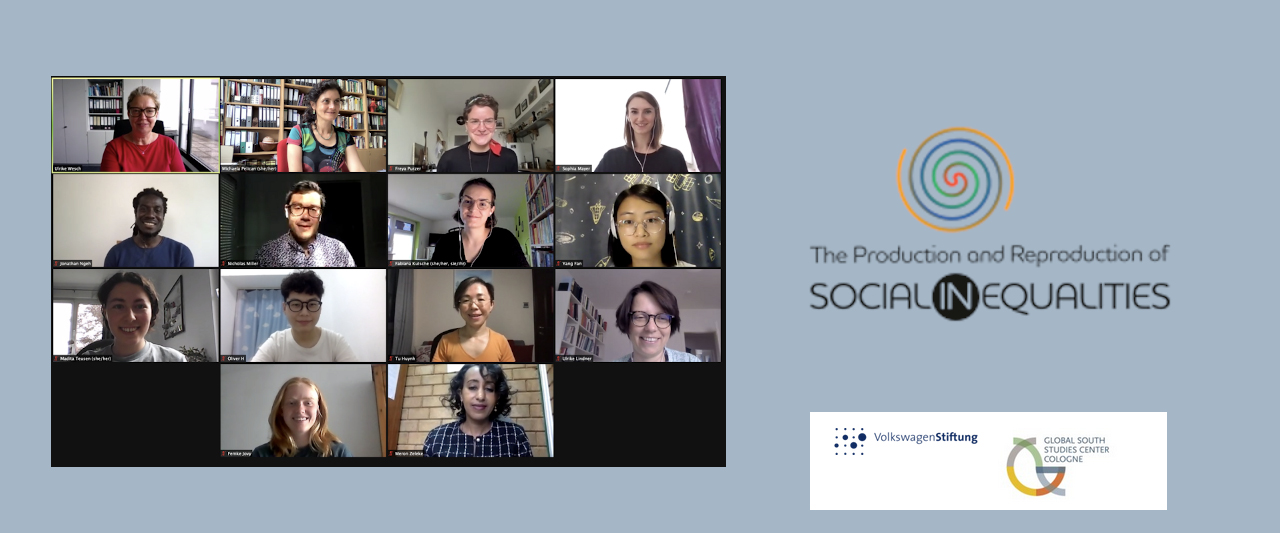
Project partners: Michaela Pelican (University of Cologne, project lead), Tu Huynh (Jinan University, Guangzhou), Meron Eresso (Addis Ababa University), Ulrike Lindner (University of Cologne)
Duration:
Funding Phase: 2020-2024 (48 month) | Budget 1.258.900 €
The starting point for this project is a very specific conundrum: Why have attempts at increasing equality often contributed to generating more durable inequalities? To shed some light on this question, this research focuses on concepts and actors and their roles in producing and reproducing social inequalities in the context of colonial and postcolonial labour systems and regimes of mobility in the "Global South". In this study, inequalities are understood as relational and historically embedded and as comprising several dimensions, including social, economic, and epistemic inequality. More specifically, the project team focuses on selected concepts that are locally grounded and describe forms of social inequalities linked to different types of labour exploitation, namely "native labour", "new slavery", "human trafficking", and "cheap/abundant labour". The team members investigate - both from a historical and contemporary perspective - how these concepts circulated on a global scale, and were negotiated, translated, and adapted by institutional and individual actors with the aim of challenging social inequalities, while eventually contributing to the production of those same, or new, inequalities. The project intends to reconcile debates on conceptual history, labour history, and inequality and combines perspectives from both South and North. Ultimately, it aims to interpret global labour regimes and to draw lessons from experiences for societies in both the “Global South” as well as the “Global North”.
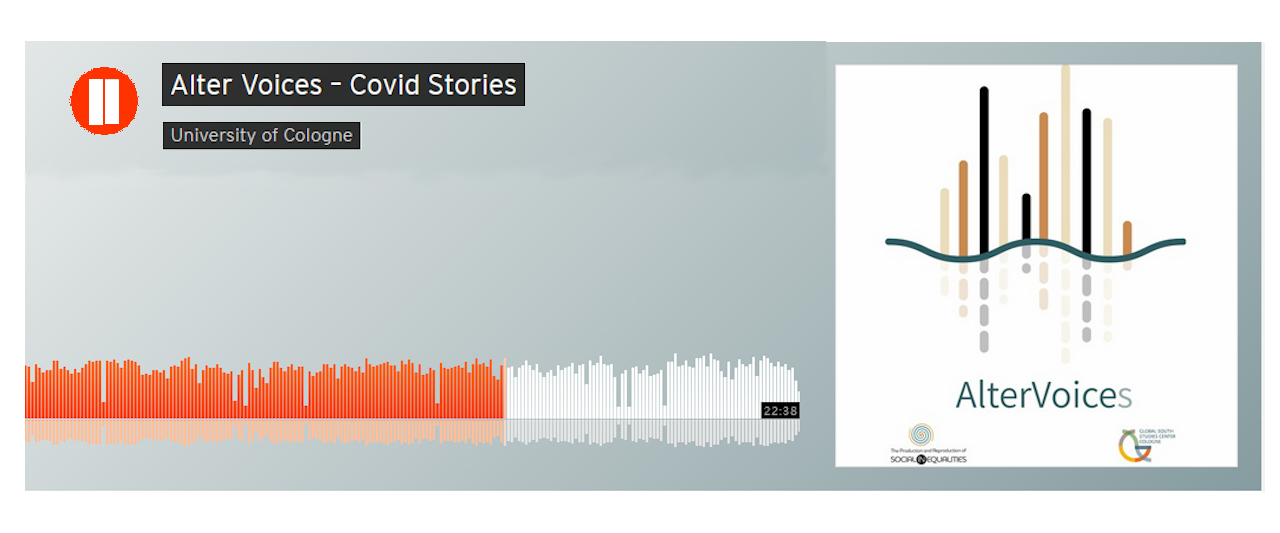
Duration
Funding Phase: 2020-2023 | Budget: 117.600 €
The key questions in this proposed research are: How does the COVID-19 pandemic affect the production and reproduction of social inequalities as well as the emergence of opportunities for especially vulnerable migrants? And which role does communication play in this context? These questions will be studied in relation to the experiences of African migrants in the United Arab Emirates (UAE) and in China. In addition to showing the pandemic’s differential socio-economic impact on different populations in society, the findings will reveal how solidarity at the grassroots level underlies the successful mitigation of this crisis in at-risk communities. The main impact of the study will lie in translating the findings into practical suggestions on how to improve communication with and within vulnerable migrant communities so as to strengthen their resilience in view of the ongoing pandemic and future crises.
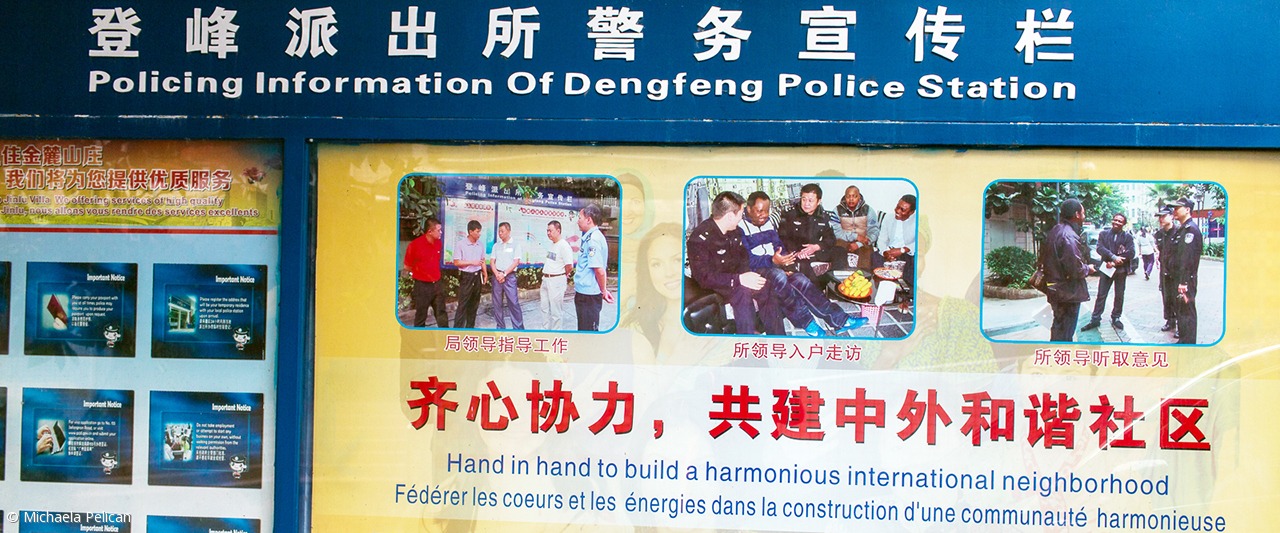
Laufzeit
Förderphase: 2014-2019; Fördervolumen: 333.500 €
Weitere Informationen:
http://gepris.dfg.de/gepris/projekt/258454708
http://www.michaela-pelican.com/research_migration.php#China-immigration
Das Projekt untersucht Veränderungen in der Migrationspolitik Chinas seit 2012 und deren Auswirkungen auf afrikanische Geschäftsleute und Studierende im Süden Chinas. An das Projekt angeschlossen waren/sind die Promotionsforschungen von Zhou Yang 'Intercultural Marriage, Legal Status and Social Belonging in China: Chinese-African Couples and Families in Guangzhou' (abgeschlossen 2017); Séverin Kaji 'Student Migration from Cameroon to China: Government Rhetoric and Student Experiences'; Lai Pik Chan 'Foreign English Teachers in China – Opportunities and Challenges'.
Dauer: 2007 - 2014
Das Forschungsprojekt befasste sich mit Süd-Süd Migration innerhalb Afrikas sowie von Kamerun in die Golfstaaten. Im Zentrum standen die unternehmerischen Erfahrungen und Strategien von Migrant*innen, Kommunikation und den Austauschbeziehungen mit Familie und Freund*innen im Herkunftsland, sowie der Einfluss der Migrant*innen auf lokale Vorstellungen zu Identität, Moderne und Bürgerrechte in Kamerun.
Dauer: 2000-2006
In meiner Dissertationsforschung beschäftigte ich mich mit der Frage nach Strukturen und Mechanismen, die ein Zusammenleben verschiedener Bevölkerungsgruppen in einem kulturell und ethnisch heterogenen Umfeld positiv oder negativ beeinflussen. Dieser Fragestellung ging ich während vierzehn Monaten Feldforschung (2000-2002) in der Kleinstadt Misaje im anglophonen Nordwesten Kameruns nach.
Dauer: 1996-1999
Meine Magisterforschung untersuchte die pastorale Wirtschaftsweise der Mbororo-Fulbe in Nordwestkamerun. Im Zentrum der Untersuchung standen die geschlechtliche Arbeitsteilung, sowie soziale Veränderungen als Folge der Sesshaftwerdung im Laufe des 20. Jahrhunderts. Besonderes Augenmerk wurde der wirtschaftlichen und sozialen Stellung der Mbororo-Frauen geschenkt.
Ein weiterer Schwerpunkt meiner Arbeit liegt auf der Anwendung medienbezogener Methoden im ethnologischen Forschungsprozess. Als Beispiele benenne ich die Analyse von Rollenspielen zu Bauern-Hirten Konflikten und Milchvermarktung im Rahmen meiner Dissertationsforschung, sowie den Einsatz von Video-Briefen in meinen Untersuchungen zu transnationalen Beziehungen zwischen Migrant*innen und deren Verwandten im Herkunftsland.
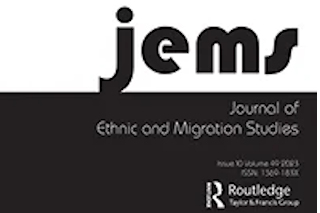
citizenship negotiations of children in Chinese–foreign families in the People’s Republic of China. With Elena Barabantseva, Caroline Grillot
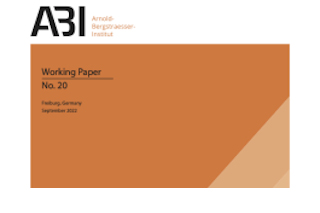
historical and political background. ABI Working Papers, No 20

Extreme Speech and Violence in the Anglophone Conflict in Cameroon. With K. Schumann, S. Plücken, D. Drew.
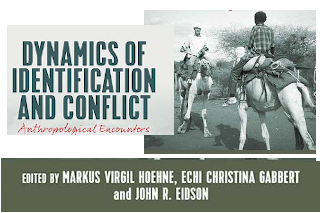
through performative and audio-visual research methods.Examples from Cameroon
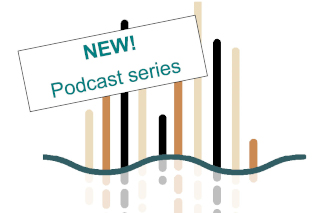
Co-Production of Research Unit "The Production and Reproduction of Social Inequalities"
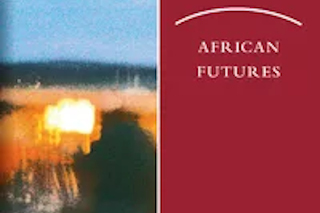
Innovation, Music and Future Making by Young Africans in a Challenging Environment: Examples from Cameroon and Nigeria
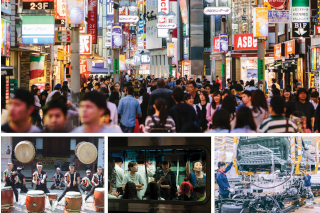
Uncertain Choices of Chinese-Foreign Children's Citizenship in the People’s Republic of China
Pelican, Michaela. 2015. Masks and Staffs. Identity Politics in the Cameroon Grassfields. Oxford, New York: Berghahn.
Pelican, Michaela, Sabine Damir-Geilsdorf, and Karim Zafer (eds.). 2020. Flucht - Familie - soziale Netzwerke: Forschungen mit Geflüchteten in und um Köln. Kölner Arbeitspapiere für Ethnologie (KAE) No. 08.
Pelican, Michaela and Sofie Steinberger (eds.). 2017. Melilla. Perspectives on a Border Town. Kölner Arbeitspapiere zur Ethnologie 6. Institut für Ethnologie, Universität zu Köln.
University of Cologne Forum ‘Ethnicity as a Political Resource’ (ed.). 2015. Ethnicity as a Political Resource – Conceptualizations across Disciplines, Regions, and Periods. Bielefeld: Transcript.
Maruyama, Junko and Michaela Pelican (eds.). 2015. Indigenous Identities and Ethnic Coexistence in Africa. Special issue of African Study Monographs 36(1).
Damir-Geilsdorf, Sabine, Mira Menzfeld und Michaela Pelican (eds.). 2014. Islam und Sport: Einblicke in das interdisziplinäre Forschungs- und Lehrprojekt "Ethnographie vor der Haustür" der Universität zu Köln. Kölner Arbeitspapiere zur Ethnologie 5. Institut für Ethnologie, Universität zu Köln.
Pelican, Michaela and Mahir Saul (eds.). 2014. Global African Entrepreneurs. Special issue of Urban Anthropology and Studies of Cultural Systems and World Economic Development, UAS 43(1-3).
Heiss, Jan Patrick and Michaela Pelican (eds.). 2014. "Making a future" in contemporary Africa. Special issue of Journal des Africanistes 84(1).
Pelican, Michaela (ed.). 2014. BAOHAN Street: An African Community in Guangzhou. Documentary photographs by Li Dong. Kölner Arbeitspapiere zur Ethnologie 4. Institut für Ethnologie, Universität zu Köln.
Barabantseva, E., C. Grillot M. Pelican. 2023. Embodied by state borders: citizenship negotiations of children in Chinese–foreign families in the People’s Republic of China. JEMS, https://doi.org/10.1080/1369183X.2023.2206000 (open access)
Pelican, Michaela. 2022. Studying conflict and ethnicity through performative and audio-visual research methods. In: M. Höhne, E. Gabbert, J. Eidson (eds.). Dynamics of Identification and Conflict: Anthropological Encounters. New York/Oxford: Berghahn, 105-133. https://doi.org/10.3167/9781800736757
Pelican, M., K. Schumann, S. Plücken, D. Drew. 2022. Mbororo under Attack: Extreme Speech and Violence in the Anglophone Conflict in Cameroon. Freiburg: ABI Working Paper 21. https://www.arnold-bergstraesser.de/abi-working-papers
Pelican, M. 2022. The Anglophone conflict in Cameroon – historical and political background. Freiburg: ABI Working Paper 20. https://www.arnold-bergstraesser.de/abi-working-papers
Ngeh, J. and M. Pelican. 2022. Innovation, Music and Future Making by Young Africans in a Challenging Environment: Examples from Cameroon and Nigeria. In: C. Greiner, S. van Wolputten and M. Bollig (eds). African Futures. Leiden: Brill, 285-295.
https://doi.org/10.1163/9789004471641_024
Barabantseva, E., C. Grillot and M. Pelican. 2021. Uncertain Choices of Chinese-Foreign Children’s Citizenship in the People’s Republic of China. In: F. Pieke (ed.). Global East Asia: Into the Twenty-First Century. University of California Press, 209-218.
Damir-Geilsdorf, Sabine and Michaela Pelican. 2019. Between regular and irregular employment: subverting the kafalasystem in the GCC countries, Migration and Development 8(2): 155-175.
https://doi.org/10.1080/21632324.2018.1479215
Ngeh, Jonathan und Michaela Pelican. 2018. Intersectionality and the Labour Market in the United Arab Emirates: the Experiences of African Migrants. Zeitschrift für Ethnologie 143(2): 171-194.
Pelican, Michaela and Li Dong. 2017. PHOTO ESSAY: Baohan Street: An African Community in Guangzhou. In: Hodgson, D.L. & J. Byfield (eds.) Global Africa. University of California Press, Oakland.
Pelican, Michaela. 2013. Insights from Cameroon: Five years after the Declaration on the Rights of Indigenous Peoples. Anthropology Today 29(3): 13-16.
Pelican, Michaela. 2013. International Migration: Virtue or Vice? Perspectives from Cameroon. Journal of Ethnic and Migration Studies 39(2): 237-258.
Pelican, Michaela. 2009. Complexities of indigeneity and autochthony: an African example. American Ethnologist 36(1): 149-162.
![]()